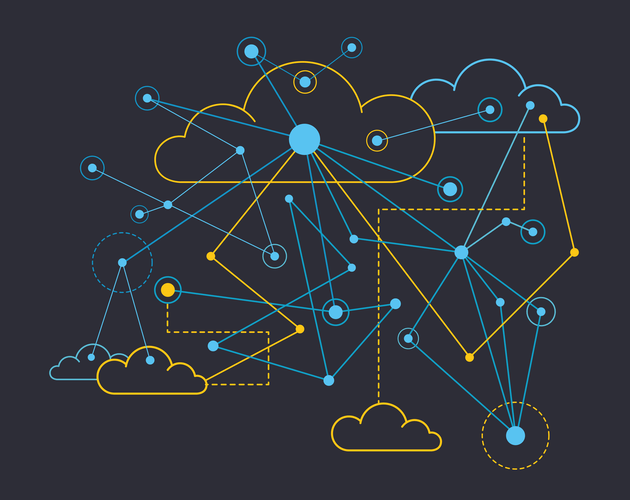With 60+ speakers from industry leading companies, the largest service speaking faculty in Europe, Field Service is your best opportunity to learn from your competitors and develop key strategies that will help you have a transformative impact on your organization. CGAP believe that electronic https://globalcloudteam.com/what-is-digital-finance-transformation/ money issuers should be allowed – but not required – to distribute some or all of the float interest to their e-money customers. CFOs and finance teams are increasingly being asked to do more with less, provide insights to business and regulators, and navigate the complex technology landscape.
The Global Center for Sustainable https://globalcloudteam.com/ focuses on this domain and aims to develop innovative approaches , accelerate those approaches and train students and practitioners to foster innovation on a global scale . During this session students will go through the evolution of IT architecture in Financial Services. From the monolithic all-in-one system of the 70’s to the modern, cutting edge, digital 24/7 cloud architecture passing through distributed applications and service-oriented patterns. New requirements arise daily and the IT landscape continues to evolve, adding new applications, replacing old ones, and having to suffer inefficiency due to non-de-commissionable systems (i.e., legacy applications).
To: FT Live: Innovation in Wealth Management
The growth of DFS models based on massive collection and exploitation of customer data has also prompted regulation dealing with protection of customer data, restrictions on its use, and localization of storage. Last, as with agent regulations, FCP rules are not always consistent for different providers and products. The package includes a digital finance strategy, and legislative proposals on crypto-assets and digital resilience, and a renewed retail payments strategy. The goal is to create a competitive EU financial sector that gives consumers access to innovative financial products, while ensuring consumer protection and financial stability. The package supports the EU’s ambition for a recovery that embraces the digital transition. Digital financial services can play an important role in modernising the European economy across sectors and turning Europe into a global digital player.

New entrants, such as mobile network operators , payment service providers , merchant aggregators, retailers, FinTech companies, neo-banks, and super platforms, are leveraging these technologies and altering the competitive landscape for financial services. We work to reduce the cost to serve by fostering and supporting innovative and sustainable financial services providers. An approach is needed that can adapt to this context and support the development of financial service innovations without getting stuck in complexity.
Products & Services
IFC then focused more on supporting the development of business strategies leveraging technology to enable financial services as well as optimizing distribution through agents. With the rapid evolution of the industry, IFC’s support shifted to include risk management, product diversification beyond payments as well as improved consumer services. The IIF is leading efforts to help our members and the public sector understand and leverage the technology-driven transformations reshaping financial services. We focus on distributed ledger technology, artificial intelligence and machine learning, quantum computing, data policy, digital identity, cloud, and other technologies. Our industry-leading work on digital asset regulation engages global standard setting bodies and central banks to help understand and shape the development of Central Bank Digital Currencies and private tokenization solutions. We advocate for financial services innovation as well as making cross-border payments more efficient and our events bring together senior public sector officials, financial services leaders, and technology experts.

Public/Private dialogue is enabled by our experience implementing DFS projects and supporting the engagement of the private sector with regulators to discuss key regulatory barriers. Exposure to global trends allows local regulators to understand their choices in the context of emerging best practices, leveraging UNCDF’s presence in multiple countries and participation in the global digital finance community of practice. A special licensing category for nonbank e-money issuers is considered a key regulatory enabler for inclusive digital financial services. This Technical Note compares the EMI license with the payments bank license that India, Mexico and Nigeria have created. A basic enabling condition for DFS is a special licensing window for nonbank e-money issuers .
I-SIP Toolkit: Policy Making for an Inclusive Financial System
The ideal is a balanced or proportionate regulatory system that enables and protects but avoids imposing undue compliance costs on (often low-margin) DFS providers. In many countries, the evolution of finance has led to better and cheaper access to services as well as to new products such as safer formal savings, and new types of credit. This has helped individuals, households, and firms improve resilience, pursue economic opportunities, and support their livelihoods. Yet in just as many countries, this evolution has introduced new risks or magnified pre-existing forms of inequality. Cases of cyber attacks, online fraud, loss of funds, over-indebtedness, irresponsible data practices, algorithmic bias, and abusive debt collection practices are common across many countries where USAID works. Additional financial services via the digital transactional platform may be offered by banks and non-banks to the financially excluded and underserved — credit, savings, insurance, and even securities — often relying on digital data to target customers and manage risk.

The toolkit has since been integrated into Toronto Centre trainings and piloted with additional authorities by other development organizations. Thekey regulatory issuesraised by digital financial inclusion relate to agents, anti-money laundering and countering financing of terrorism (AML/CFT) rules, regulation of e-money, consumer protection, payment system regulation, and competition. Many of these issues fall within multiple regulators’ competencies, requiring effective communication and collaboration among them.
Call for Papers: Special Issue “FinTech for the common good”
In-depth knowledge of the technologies that are at the basis of the major transformations taking place in the Financial Services Market. In the final stages of the master’s programme, a thesis document will be drawn up describing the work done during the entire project. The thesis will be presented to a commission consisting of professors from the POLIMI GSoM and REPLY experts who will provide the final evaluation. The Master’s programme offers a valuable professional and specialised opportunity in the most innovative IT issues in Finance. Reply will fully bear the costs of the programme upon acceptance of the proposal and commitment to stay for 3 years from the start of the programme.
- Through the ‘Deep dive in finance’ courses, the student will explore specific issues in the banking and insurance market.
- We make payments, transfer money and make investments using a variety of new tools that were not there few years ago.
- Deloitte refers to one or more of Deloitte Touche Tohmatsu Limited, a UK private company limited by guarantee (“DTTL”), its network of member firms, and their related entities.
- The technologies needed to reimagine finance are here and they will only get better.
- New entrants, such as mobile network operators , payment service providers , merchant aggregators, retailers, FinTech companies, neo-banks, and super platforms, are leveraging these technologies and altering the competitive landscape for financial services.
- The Toronto Centre is a leading capacity-building organization for central banks and financial sector supervisory authorities.
Moody’s analysts discuss the rescue of Credit Suisse, and explain why some fintechs have thrived even in adversity. Fintechs with banking licences have hit hurdles as economies slow and the equity funding they rely on becomes scarcer and more expensive. If you pass the selection process, you’ll be offered a permanent contract by a Reply group company.
Our eight predictions about digital technology for CFOs
While the consequent network effects can lead to efficiency gains and lower user costs, they can also be leveraged for anticompetitive activities. FinVENTA, an integrated technology platform that leverages a modern digital finance architecture and disruptive technologies to showcase the art of the possible across operational, business and specialized finance for deeper, more accurate insights that speed time to outcome. All products, services, technology and/or infrastructure that enable individuals and businesses to access payments, savings, and credit facilities via the internet without visiting a bank or dealing directly with the financial service provider. ADB supports projects in developing member countries that create economic and development impact, delivered through both public and private sector operations, advisory services, and knowledge support. Digital Finance leverages EY and SAP leading practices, tools and assets to simplify, standardize and automate broad business processes, including tax; help enable new business models; and support growth strategy, including mergers and acquisitions.
Digital banking revolution in the Philippines – McKinsey
Digital banking revolution in the Philippines.
Posted: Wed, 03 May 2023 07:00:00 GMT [source]
Advances in technology hold the promise for solving some of the key challenges to achieving full financial inclusion. Disruptive technologies and new entrants are radically changing the financial services industry forcing traditional business models to adapt and transform the economics of delivery to benefit marginalized communities. Artificial intelligence, automation, big data, distributed ledger technology, and machine learning are just a few examples of technology trends that are accelerating innovation in financial services.
FinTech action plan: For a more competitive and innovative European financial sector
USAID has supported CGAP, which is housed at the World Bank for years, and USAID also played a role in founding CGAP in the mid-1990s. Across its global portfolio, USAID has invested significant resources in the development of inclusive financial sectors and open, inclusive, and secure digital ecosystems. Over the last two decades, many USAID Missions and country-level activities have contributed to better outcomes for partner-country communities. Those activities are exemplified by past efforts like USAID/Colombia’s Rural Finance Initiative, USAID/Philippines’ E-Peso Activity, and USAID/Nepal’s support for UNCDF’s Mobile Money for the Poor program. President Kim’s optimism is shared by the leaders of the G20 countries and the members the global financial sector standard-setting bodies from over 50 countries that are committed to the financial inclusion agenda both globally and domestically.
